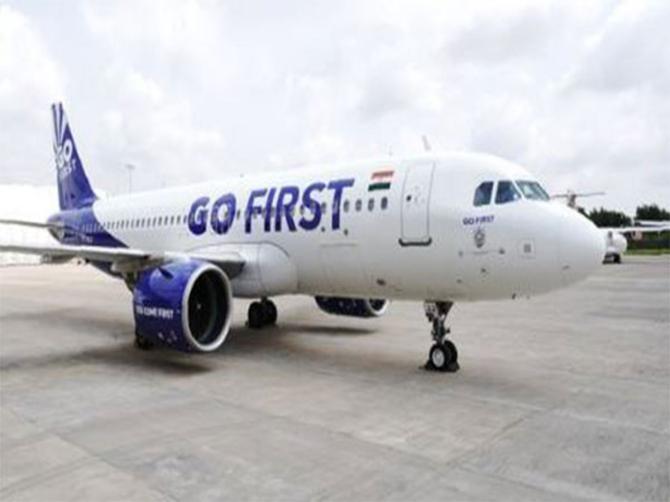Insolvency tribunal NCLT on Wednesday rejected Go First lessors' petitions to take back the planes leased to the grounded airline, and said the aircraft are available for resumption of operations since aviation regulator DGCA has not deregistered them.

A two-member bench of the National Company Law Tribunal (NCLT) held that physical possession of the aircraft/engines would be "indisputably" with Go First and lessors cannot claim possession during the Corporate Insolvency Resolution Process (CIRP) of the carrier.
According to the tribunal, aircraft and its engines are the sole essence of Go First's business and if taken away, it would result in its "corporate death" leaving no scope for its resolution.
The tribunal also declined the lessors' pleas for inspection of their leased aeroplanes and engines, and strongly reiterated that it was the responsibility of the Resolution Professional to maintain them at the highest levels of efficiency/safety.
"The physical possession of the aircrafts/engines is indisputably with the corporate debtor (Go First).
"Therefore, in terms of Section 14(1)(d), the applicants would not be within their rights to claim possession of these aircrafts/engines," the NCLT bench said in its 29-page long order passed on the petitions filed by several lessors of Go First.
"The moratorium prohibits the recovery of the aircraft/engines by the lessors (applicants) from the corporate debtor," it added.
Section 14(1)(d) of the Insolvency and Bankruptcy Code (IBC) pertains to the mandatory provision about the imposition of the moratorium which is triggered after the commencement of the CIRP.
Aircraft lessors -- Bluesky 31 Leasing Company, Bluesky 19 Leasing Company, Jackson Square Aviation Ireland, SMBC Aero Engine Lease BV and Engine Lease Finance BV -- had moved NCLT and also requested to restrain Go First from operating or flying their aircraft for commercial use.
Rejecting their pleas, NCLT observed that the Directorate General of Civil Aviation (DGCA) has not deregistered the aircraft, which means that they are available to Go First for use to resume operations.
"Therefore, as long as the aircraft/engines are registered, they can be used for operating or flying to keep the corporate debtor as a going concern, however, within the safeguards/safety norms prescribed by the regulators," it said.
NCLT also said that while allowing the CIRP of Go First on May 10, it had ordered to keep Go First as a going concern.
"In order to keep the corporate debtor as a going concern, the aircraft have to be flown and hence, the aircraft shall be with the corporate debtor and shall be operated by the corporate debtor.
"Therefore, we see no reason to allow this interim relief claimed by the applicants (lessors)," NCLT bench, comprising members Rahul Bhatnagar and Mahendra Khandelwal, said.
Besides, the tribunal noted that it is a settled position of law that no party ought to be allowed to act in a manner that defeats the provisions of a statute.
"In the aviation industry, the prevailing practice is that most airlines lease the aircraft for their operation rather than own them. In other words, the aircraft are not as such the property of the airlines.
"Therefore, the application of the provision of the IBC and the process of insolvency would have no meaning in respect of airlines as corporate debtors, if the sole essence of the corporate debtor's business is taken away. It would result in corporate death of the corporate debtor, leaving no scope for resolution of the corporate debtor," it said.
Aircraft lessors had claimed that they had send termination notices with respect to the leased planes before Go First moved NCLT and order was passed.
The tribunal observed that "there can be little doubt" that lessors were aware of the filing of the insolvency plea by the then Go First management as it was widely reported in the media.
"It is strongly indicative of the fact that the objective behind issuance of the termination notice, termination of the lease agreements and filing of the present application was to evade the rigors of moratorium as envisaged under Section 14 of the IBC," it said.
Section 14 of the IBC pertains to moratorium.
On May 10, NCLT had admitted the plea of Go First to initiate voluntary insolvency resolution proceedings.
Go First stopped flying from May 3.










